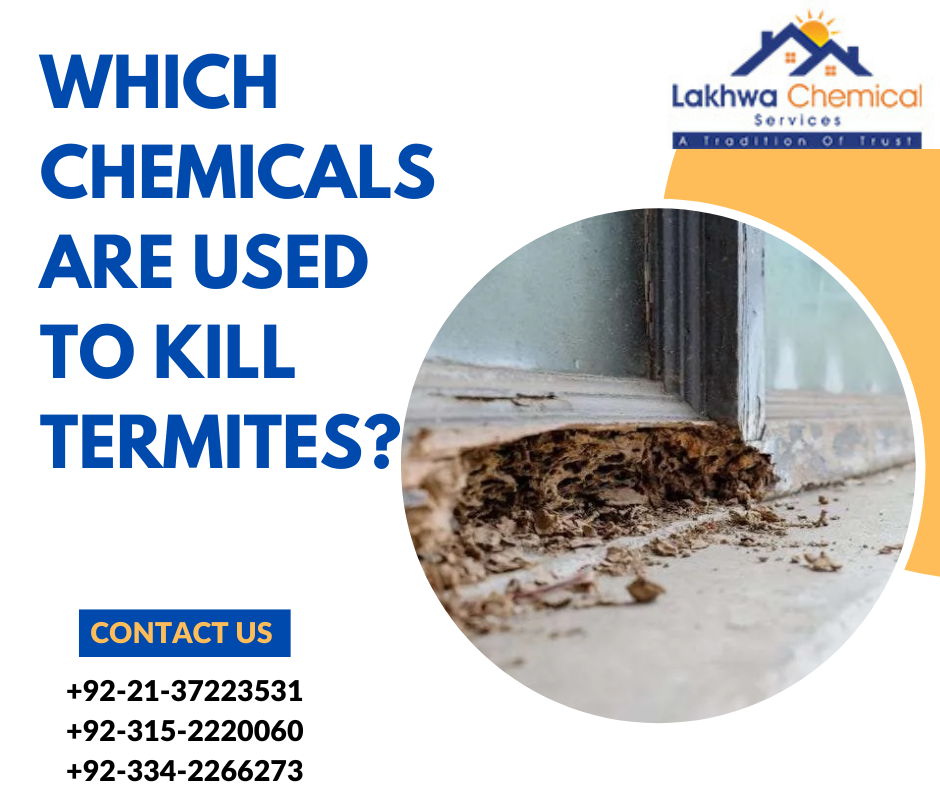Which Chemicals are used to Kill Termites?
According to research, termites damage 600,000 premises (on average) in the USA every year. And, people spend $5 billion (per year) on maintenance. Safeguard Your Home from Costly Damage with Effective kill Termites Extermination Solutions. Termites are one of the most destructive pests known to man, causing significant damage to wooden structures and buildings. Combating termite infestations requires a comprehensive approach: Chemical treatments are among the most effective methods.
Chemicals for Termite Control
Several chemicals have proven to be effective in exterminating termites and preventing infestations. They can be categorized as:
- Repellents
- Non-Repellents
Repellent Treatments
Repellant chemicals are designed to deter or prevent pests, insects, or animals from infiltrating an area or object. These chemicals emit strong odors that affect the respiratory system of living organisms: The treated area is left unattended for several days. Common repellents for termite control are:
- Bifenthrin: Bifenthrin is a synthetic chemical (pyrethroid) that disrupts the nervous system of termites and paralysis their body. It is used for perimeter treatments to create a protective barrier within buildings.
- Permethrin: Another synthetic pyrethroid, Permethrin, acts in the same manner as Bifenthrin: It affects the nervous system of termites and render malfunctioning. It is used in liquid and dust formulations.
- Cypermethrin: Cypermethrin is a potent insecticide with a long-lasting residual effect. It is used for soil treatments to prevent termite infestations.
Non-Repellent Treatments
Non-repellent chemicals are undetectable by termites; they, unknowingly, transfer the insecticide back to the colonies, leading to a domino effect. Some non-repellent termiticides include:
- Fipronil: Fipronil is a broad-spectrum insecticide that targets the central nervous system of termites. Its delayed action allows the wood-eating creatures to carry the chemical back to their colonies and affecting fellow members adversely.
- Imidacloprid: Imidacloprid is a systemic insecticide absorbed by the soil and plants. Insects, such as termites, also ingest it while feeding on treated wood or soil. This chemical is used in minute quantities; it exterminates the entire colony within minutes.
- Chlorantraniliprole: These insecticides act on the muscle cells of termites, causing paralysis and death. Chlorantraniliprole show excellent results against insects, such as termites and cockroaches.
Application Methods
Various methods are used to apply termite control chemicals. The application depends on the extent of infestation and the target area.
- Soil Treatment: Soil treatment creates a chemical barrier around the foundation of a structure to prevent termites from entering. This method is employed in situations, such as pre-construction, preventive measures, and more.
- Wood Treatment: Wood treatment involves the application of termiticides onto wooden structures susceptible to attacks. This method safeguards the treated wood and acts as a deterrent against future infestations.
- Baiting Systems: Bait stations containing termite food laced with slow-acting toxic chemicals are used in the baiting process. Termites consume the bait and infect their fellow species, destroying the entire colony in the process.
Environmental Impact
While chemical treatments are effective in termite control, worries about their impact on the environment and non-target organisms have arisen. Some chemicals used for controlling termites can be toxic to aquatic life, birds, and beneficial insects. To mitigate the environmental impact, it is crucial to follow proper guidelines. Additionally, some termite control chemicals can persist in the environment for extended periods, leading to potential soil and water contamination. Manufacturers and field experts ensure proper handling and disposal of the chemicals.
Conclusion
Chemical treatments play a vital role in combating termite infestations and protecting structures. Repellent and non-repellent chemicals offer distinct advantages, allowing for different approaches to termite control. However, it is essential to consider their environmental impact and use them accordingly. Consult with Lakhwa Chemical Services, one of the best pest-control companies in Karachi, Pakistan.




Leave a Reply
Want to join the discussion?Feel free to contribute!